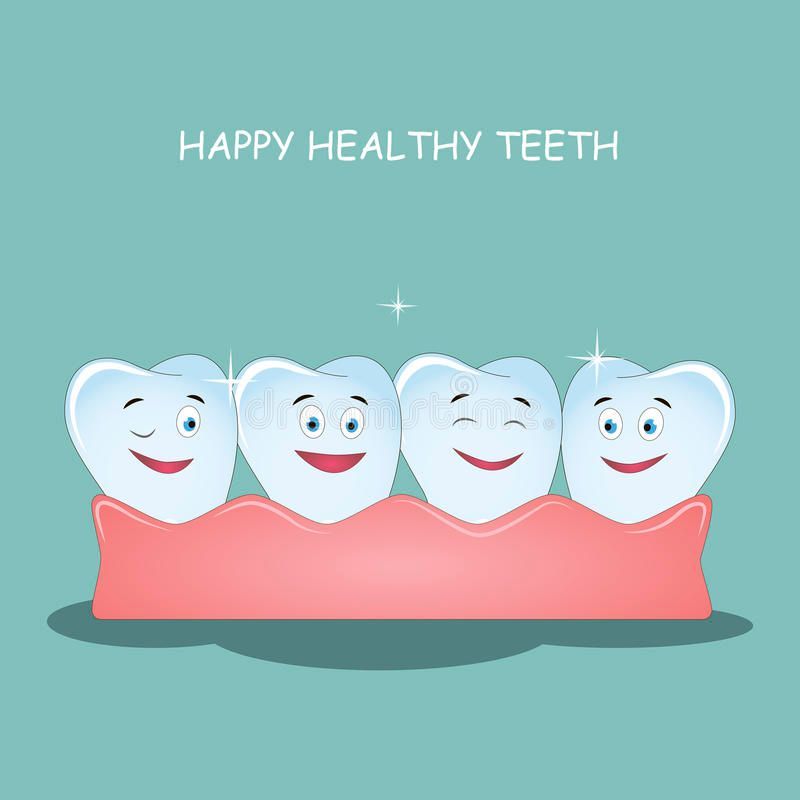-
Huntington Beach: 16052 Beach Blvd Ste. 112, Huntington Beach, CA
Emergency: (714) 600-4456
Huntington Beach: 16052 Beach Blvd Ste. 112, Huntington Beach, CA
Fountain Valley: 17991 Euclid St, Fountain Valley, CA
-
Fountain Valley: 17991 Euclid St, Fountain Valley, CA
Benefits of Dental Implants
Natural-looking, natural-acting and natural-feeling teeth replacement options!
What is a Dental Implant?
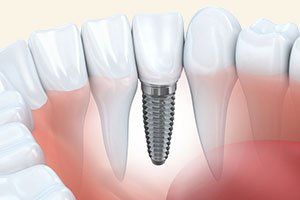
A dental implant is a titanium post which is anchored into the jawbone and is used to support a restoration, such as a crown, to replace a missing tooth. Implants look, feel and act like natural teeth and can last a lifetime if properly cared for. Dental implants are also used to support bridges and dentures.
Tooth replacement with dental implants
Dr. Chris Bonin uses dental implants to replace single and multiple missing teeth, or a full arch of teeth using implant-supported dentures. Dental implants are the modern method of replacing missing teeth. Implants have several advantages over other forms of tooth replacement, and with modern innovations in technology, most patients can benefit from them.

Free Dental Implant Consultation
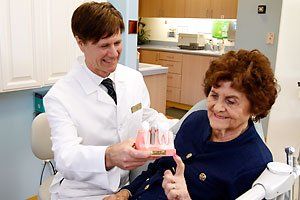
We offer a free dental implant consultation so you can learn more about this modern tooth replacement option.
-
Consultation with the doctor
-
Review your treatment options
-
Learn about the procedure
-
Get all your questions about dental implants answered
To make an appointment, call 714-841-0203 or click here to request an appointment online.

Who are candidates for Dental Implants?
In the past, patients with an insufficient amount of jaw bone or who had certain health conditions were not considered candidates for dental implants. This was due to the difficulty in placing the implants or the potential risk involved.
Developments in bone grafting and bone reconstruction techniques, as well as the minimally invasive nature of modern implant placement have made it so that most patients can now receive implants.
Additionally, there are now implant procedures that make bone grafting unnecessary, and make implant treatment faster and more affordable than ever. Patients who smoke or who have conditions such as diabetes, can also be treated safely, although the success rate of the implant may be reduced slightly due to lower healing ability.
Benefits and advantages of Dental Implants
Dental Implants can last a lifetime

Dental implants use titanium, a long-lasting bio-compatible metal. Implants are susceptible to the same periodontic issues as natural teeth, however, and require good oral care and regular cleanings at the dentist, just like natural teeth.
Dental Implants behave like natural teeth
Once their implant is placed, most patients can’t tell the difference between their natural teeth and the implant tooth. They can eat with it completely normally, with full chewing power, and they can brush and floss normally as well. Implants used to support restorations such as dental bridges and dentures are also very lifelike in look and function.
Dental Implants prevent bone loss
Bone in the jaw deteriorates where there is no tooth. This is because the bone requires the pressure of chewing to maintain its density. In the first year after losing a tooth, if no implant is placed, the bone where the tooth was loses 25% of its volume, and bone loss continues over the years.
Implants act as natural teeth and provide the stimulation needed to maintain jaw bone volume. This is also true for implant-supported bridges or fixed (non-removable by the patient) implant-supported dentures.

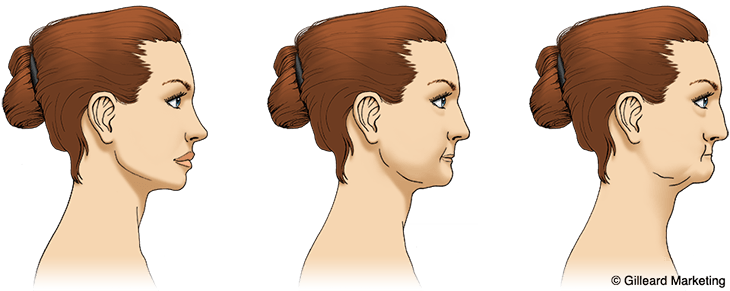
Dental Implants keep adjacent teeth stable
The gap caused by a missing tooth can destabilize adjacent teeth, causing them to shift towards the gap. This pulls your teeth out of position and can affect your bite and your ability to chew. A poor bite can also lead to problems with your TMJ (temporomandibular joint).
Dental Implants can prevent facial sagging and premature aging
When a person is missing many or all of their teeth, the face can begin to sag and experience other changes. The height between the tip of the nose and chin decreases, causing the lower third of the face to collapse. This also results in excess wrinkles around the mouth, drooping jowls, sagging skin, thinning lips and a more pointed chin; making the person look a lot older than they really are.
As dental implants can prevent bone loss, they can also prevent facial sagging for people who have all or many of their teeth missing.
Dental Implants vs. Dentures
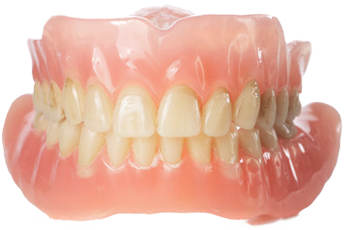

Stable teeth with good chewing power!
Dental implants provide a far superior experience compared to dentures because of dentures’ unstable nature. Even dentures that fit well when first made soon lose their fit due to increasing bone loss. Eventually, it’s difficult to keep any denture stable due to wear on the bony ridges that dentures clasp onto. The most frustrating aspect of dentures, and the most unhealthy, is their poor chewing ability.
If you are deciding between traditional dentures or an implant-supported restoration, here are some things to consider.
-
Dentures often have to be kept in the mouth by using a dental adhesive.
-
Dentures have to be removed for cleaning. With the exception of a removable implant-retained denture, your implant-supported restoration can be care for by brushing and flossing.
-
Dentures can slip out while eating or speaking. Implants and implant-supported dentures are securely anchored and won’t slip out.
-
Dentures cover the roof of the mouth. With implants, there’s nothing covering the roof of your mouth to interfere with your sense of taste or other normal activities. Implant-supported dentures can also be fabricated without a palate.
-
Dentures don’t provide the stimulation needed to prevent bone loss. Jawbone needs to have the stimulation of high-pressure chewing to keep its volume. Implants ensure no jaw bone is lost.
-
It’s hard to chew with dentures and you can’t eat a lot of food you like or need. Dentures can move while you chew, which is annoying, and also makes it difficult to chew! In fact, dentures generally have only 10% or less of full chewing power. Dental implants have full chewing power and implant-supported bridges or dentures also considerably increase the chewing power.
-
Dentures can click while eating. With implants or implant-supported dentures, there’s no annoying clicking sound.
-
Progressive bone loss as a result of wearing dentures can cause facial collapse. Over the years bone loss can cause the collapse of the lower third of your face, creating excessive wrinkles, sagging skin and jowls, thinning lips and a sunken-in look. This can considerably age a person’s appearance.


Dental Implants vs. Dental Bridges
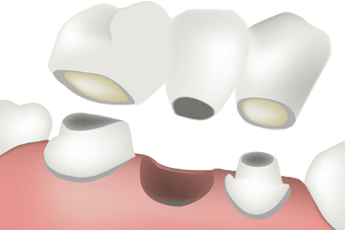
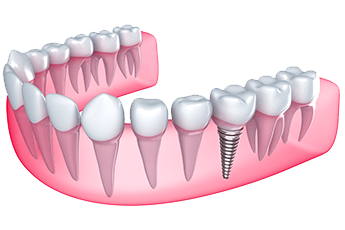
A bridge consists of false teeth supported by adjacent teeth that have been capped. It is used to replace one or two missing teeth.
A bridge requires two usually healthy teeth to be cut down, which is not an ideal way of replacing a missing tooth compared to a dental implant. Bridges tend to have short lives, five to ten years, compared to a dental implant which can last a lifetime. So while a bridge can sometimes be more economical initially, in the long run a dental implant can cost you less.
To make an appointment, call 714-841-0203 or click here to request an appointment online.


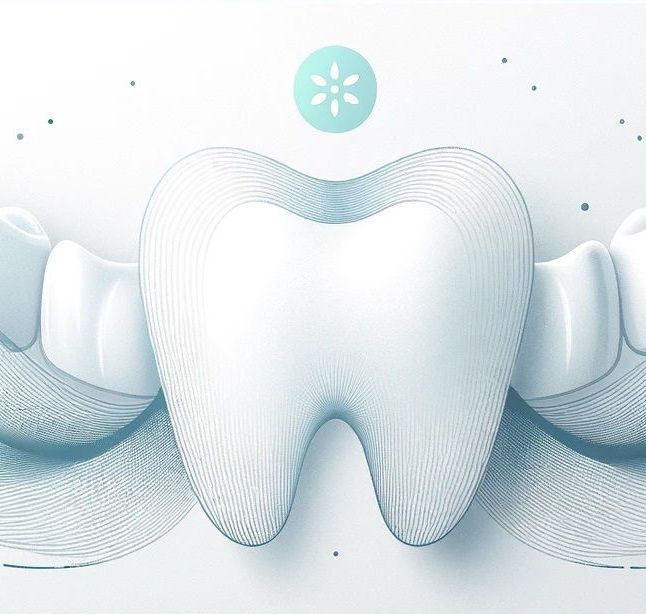

About Us
With so many dental offices to choose from in Orange County, it’s difficult to find the one that’s ideal for you. At Oceanic Dental, compassion and expertise come together to provide concierge-level dental care that will help you achieve the smile you love.
24/7 Emergency Phone
Areas We Serve
Office Hours
-
Monday - Friday: 8AM - 5PM
-
Saturday: 8AM - 3PM
Locations
Huntington Beach
-
16052 Beach Blvd Ste 112 Huntington Beach, CA 92647
-
(714) 841–0203
Fountain Valley
-
17991 Euclid St Fountain Valley, CA 92708
-
(714) 378-0085
Oceanic Dental. All Rights Reserved.


